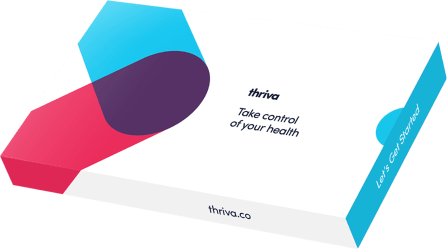Health tracking has become a normal part of everyday life. You can learn about your risk of health conditions, sleep patterns, mood, heart rate, daily steps, menstrual cycle, and diet at the tap of a button. But what’s the benefit of having access to all of this information? Can it improve behaviours that affect your health?
Why do a home blood test?
Blood testing is the most reliable way to understand and track your physical health — whether you want to monitor an existing condition or get a general health check.
Your blood is full of things that you can measure (health markers), including:
- cells — your body contains trillions of cells that carry out various functions
- proteins — large and complex molecules playing critical roles in your body
- hormones — your body’s chemical messengers (like your thyroid, testosterone, and oestrogen)
- nutrients — vitamins and minerals that keep your body healthy (like vitamin D, magnesium, and omega-3)
Knowing these levels can give you critical insights into your health and what’s happening inside your body.
What can blood tests tell you?
Blood test results show your body’s responses to any lifestyle changes you make. And because your results show if your health markers levels fall in the normal range, you can also see if you’re getting closer to reaching your health goals.
For example, adding more fibre to your diet might significantly reduce your LDL cholesterol levels. So once you’ve made that change, you can repeat a blood test to prove it’s made a difference.
Why track your blood test results?
A single blood test only provides a snapshot of your health. But regularly tracking a range of health markers can indicate how your body’s systems function over time and lead to better outcomes.
For example, continuous blood sugar (glucose) monitoring improves diabetes control and blood sugar levels. This is called the Hawthorne effect — changing your behaviour due to awareness of observation.
With Thriva +, we make it easy to track what’s happening inside your body. Plus, our NHS doctors guide you through the next steps to help you improve.
What are the benefits of health tracking?
Tracking your health is linked to a range of benefits, including:
- confidence about knowing what’s happening inside your body
- increased levels of physical activity
- an improved diet
- better weight management
- better mental health — like lower stress levels
How does tracking improve your health?
There are many ways that tracking your health might lead to improvements — mainly due to positive changes in your behaviour.
1. Self-knowledge
Health tracking can help make you more aware of your behaviours and patterns — like how active or inactive you are. This lets you make more personalised lifestyle improvements rather than following the one-size-fits-all approach.
2. Continuous feedback
Accessing feedback about your health data quickly can help you:
- understand what does and doesn’t work for your body
- how to maintain good health and positive habits
- set goals and stay motivated
- learn how to improve with tailored advice from a doctor
3. Personalised advice from NHS doctors
With Thriva+, you get personalised advice from an NHS doctor. They always consider your medical history and health goals to build an action plan to suit your unique needs. Plus, you can also book video consultations with a registered nutritionist to improve your diet.
4. Social factors
It’s common for health-tracking tools to include features that let you engage with friends, family, and other users. Social factors like social support or competition have been shown to help keep you motivated and accountable.
Overall, evidence also shows that tracking your health can help make you more aware of your behaviours, offer advice and social support, and keep you motivated. This can lead to positive behavioural changes that ultimately might lead to improvements in your health.


















